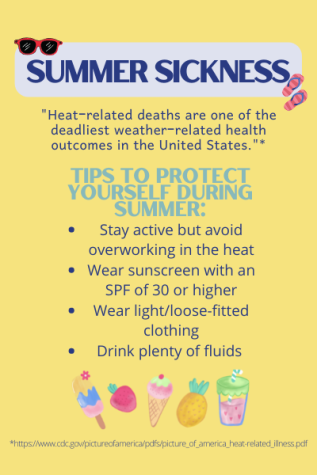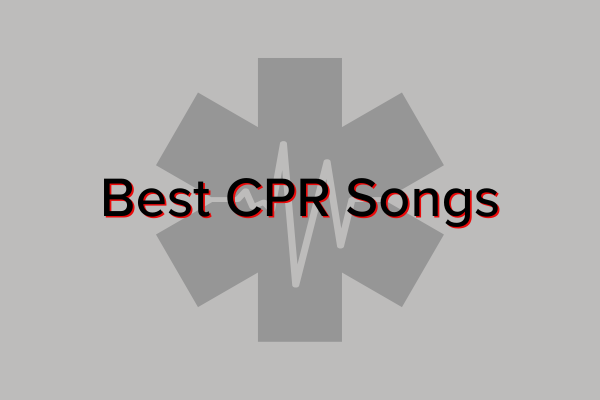With the rise of temperatures and increase in social outings, summer is widely celebrated for the joy it brings students and their families worldwide. It’s also a period where health concerns elevate. The most common summer conditions can be prevented and treated with cautionary measures.
Heat strokes are caused by an uncontrollable rise in body temperature. Within 10 to 15 minutes, someone going through a heat stroke could have their body temperature rise to 106 degrees. Symptoms include loss of consciousness, warm/dry skin, seizures and nausea. If one experiences a heat stroke, emergency services should be called immediately. Some methods of treatment include immersing the body in cold water, moving the body to a cooler area, and performing evaporation cooling techniques. Preventative measures for heat strokes include wearing loose clothing, frequently drinking fluids, and residing in cool areas.
Dehydration is a condition in which the body does not have enough water/fluids to function properly. Dehydration can occur as a result of excessive sweating, underlying illness, heat, or insufficient fluid consumption. Symptoms of dehydration are difficult to pinpoint, however, some indications include less frequent/dark-colored urination, lack of energy, and dry skin. If one is mildly dehydrated, self-treatment of increasing fluid and vegetable/fruit intake is recommended. If one is severely dehydrated and experiences extreme side effects, emergency services should be consulted immediately. Preventative measures for dehydration include eating food that has high water content and drinking plenty of fluids.
Skin cancer occurs because of abnormal cell growth from exposure to ultraviolet rays. This form of cancer usually only occurs in areas of skin that are frequently exposed to the sun. Three major types of skin cancer include squamous cell carcinoma, melanoma, and basal cell carcinoma. The most common symptom of skin cancer is the growth of a lump or change of color of a part of the skin, however, symptoms can heavily vary. Treatment can differ but usually encompasses surgery, chemotherapy, or radiation. Preventative measures for skin cancer include wearing sunscreen, avoiding prolonged exposure to sunlight and covering the body with loose-fitted clothing.

















